Best AI scheduling assistants
Managing and scheduling work meetings can feel like a full-time job in itself. We’ve all faced the common frustrations: the endless back-and-forth emails as we try to find time across multiple calendars and time zones, the headache of double-booked slots, the struggle to carve out focus time between endless appointments, and the pressure of looming deadlines that don’t feel reasonable.
I might be biased, but as a content marketer who’s experienced the chaos of finding the right meeting time for coworkers and clients across multiple time zones, I’m a prime candidate to test how AI scheduling assistants can solve these problems.
I scoured the internet for some of the best AI calendar assistants and tried each of them, evaluating their ability to turn endless deadlines into a manageable to-do list and corral meetings and projects all at once. These are my top contenders for the best AI tool that could finally solve your scheduling woes.
| Tool: | Best for: | Key features: | Cost: |
|---|---|---|---|
| Jotform AI Agents | Scheduling via AI Agent | Offers chatbot functionality for users and their customers | $36/month (annual) or $39/month |
| Sunsama | Optimizing work-life balance | Creates AI-generated daily highlights to reflect on your day | $16/month (annual) or $20/month |
| Calendly | Scheduling appointments and meetings | Focuses on meeting coordination | Team plans $16/user/month (annual) or $20/user/month Individual plans $10/month (annual) or $12/month |
| FlowSavvy | Scheduling for fast-paced environments | Uses buffer days to help complete tasks early and prevent deadline stress | Free plan available$7/month |
| Morgen | AI planning with endless customization | Offers both video and text-based tutorials for setup | Team plans $10/user/month (annual) or $25/user/monthIndividual plans $15/month (annual) or $30/month |
| Akiflow | AI executive assistant | Includes one-on-one onboarding call with guided setup | $19/month (annual) or $34/month |
| Reclaim | Time blocking personal and work tasks | AI agent provides help and resources within the app | Free plan available$8/user/month (annual) or $10/user/month |
| Day Flow | Accessible scheduling | Supports both voice and text input for task creation | Free plan available$19.99/month, $79.99/year, or $119.99 lifetime |
How we test AI scheduling assistants
I spent time experimenting with the tools on this list, comparing their functionality and ease of use to see what each has to offer. I evaluated them based on these categories:
- Natural language processing (NLP) capabilities: Does the tool offer an NLP chat option, and what can it do?
- Setup: How easy is it to set up and navigate the tool? What learning resources are available?
- Collaboration: Does the tool support team collaboration? How?
- Project management: Can the tool schedule and manage complex tasks? Can it track project progress and offer suggestions based on progression?
- Integrations: What integrations does the tool offer?
Throughout the testing process, I scheduled sample short- and long-term tasks, tested collaboration capabilities, scheduled test meetings with hectic schedules, and saw how each tool handled sudden project changes. My reviews below cover what stood out for each tool and which might be the best fit based on your needs.
1. Jotform AI Agents
Best for: AI-powered customer appointment scheduling
Key feature: Offers chatbot functionality for users and their customers
Jotform’s AI Agent tool lets you build your own AI scheduling assistant that relies on NLP. Basically, you can train and set up the AI agent by messaging with it and having a conversation.
I found this was the best tool for managing customer interactions because it uses NLP to make setup easier and to better understand what your customers need. These AI agents can collect customer information, create appointments, and provide information to resolve common issues and improve customer experience.
I’d rate the simplicity of setup a 3 out of 10, with 10 being impossible and 0 being no effort at all. It takes a second to explore the Agent’s full functionality, but I liked that you could chat with the tool for help. It’s also the only tool on our list that you can seamlessly add to your website as a white-labeled AI scheduling assistant.
Pros:
- Chatbot integration for scheduling navigation
- Good for customer-facing appointment systems
- Integrates with Gmail, Slack, Zoom, Google Calendar, and Teams
Cons:
- Time-intensive setup for full capabilities
- Better suited for business-to-customer interactions than internal team scheduling
Plans/Pricing: Contact for pricing
G2 rating: 4.5/5
2. Sunsama
Best for: Optimizing work/life balance
Key feature: Creates AI-generated daily highlights to reflect on your day
Sunsama is a thoughtfully designed productivity tool ideal for those who want an AI scheduling assistant to balance their responsibilities. It provides AI-generated daily highlights summarizing what you accomplished, helping you reflect and stay on track for even long-term projects.
It’s one of the easiest tools for managing entire teams’ calendars, with the ability to drag and drop tasks to reassign them to other team members while protecting their associated notes and tracked time.
Sunsama also uses AI to suggest how to split up tasks and flag when you might be overbooked based on your past use of the tool. Worth noting: Although this feature does learn off your use, your data is used only for your own account and never used to train external systems for your privacy.
This was my favorite time tracker as well because it has a built-in Pomodoro timer, which I use to remind myself to take breaks even when work is busy.
Pros:
- Personal data protection from external systems
- Drag-and-drop task management
- Strong focus on work-life balance and planning
- Support for popular integrations like Gmail, Outlook, Slack, Notion, and more
Cons:
- Limited advanced team collaboration features
- More time-intensive to fully customize
Plans/Pricing: $16 per month (annual) or $20 per month
G2 rating: Not available
3. Calendly
Best for: Scheduling appointments and meetings
Key feature: Focused on meeting coordination
Calendly is an easy tool for meeting scheduling, though it offers fewer AI-powered features than other tools I tested. I liked that it was super easy to schedule different types of meetings, find a time to meet for many different schedules, and create custom meeting types based on information someone provides when requesting a meeting.
Calendly doesn’t offer task-based scheduling or time tracking. But its meeting analytics evaluate scheduling patterns, such as the most requested time for meetings, meeting types, and rescheduling reports.
Pros:
- Extremely easy setup
- Custom event types for different purposes
- Strong meeting analytics and reporting features
Cons:
- No task management or AI planning capabilities
- Limited to meeting scheduling only
- No time tracking functionality
Plans/Pricing: Team plans: $16 per user per month (annual) or $20 per user per month; individual plans: $10 per month (annual) or $12 per month
G2 rating: 4.7/5
4. FlowSavvy
Best for: Scheduling for fast-paced environments
Key feature: Uses buffer days to help complete tasks early and prevent deadline stress
FlowSavvy is an option with a free AI schedule generator I found most useful for creating order when I felt completely overbooked. It has an option that re-optimized my to-dos every time I added a new task, which is perfect if you’re like me and struggle to see the forest for the trees sometimes.
I appreciated being able to set buffer days to trick myself into finishing projects early, preventing any pile-ups if something takes longer than expected. FlowSavvy also alerts you when deadlines are at risk, so you can proactively fix your workload instead of falling behind.
Pros:
- AI-based rescheduling with multiple schedule options
- Buffer day system for early task completion
- Automatic schedule adjustment when tasks overrun
Cons:
- Limited collaborative features for team scheduling
- Limited integration options
- Less suitable for complex project management needs
Plans/Pricing: Free plan available; $7 per month
G2 rating: Not available
5. Morgen
Best for: AI planning with endless customization
Key feature: Offers both video and text-based tutorials for setup
Though Morgen was the most customizable AI scheduler, I found the customization options made setup a little more difficult than other platforms. (Trust me — finish the tutorial before you start playing around with your calendar).
Once I got going, the AI planner helped break long projects into digestible chunks or schedule complicated multi-phase projects. Team scheduling features exist, but they’re not as intuitive as other tools I tested.
Pros:
- AI-assisted planning with custom recurring task support
- Extensive tutorial resources with video and text options
- Can break down tasks into customizable chunks
Cons:
- Clunky setup due to extensive customization options
- Tutorial completion tracking can be glitchy
- Team collaboration features aren’t very user-friendly
Pricing: Team plans: $10 per user per month (annual) or $25 per user per month; individual plans: $15 per month (annual) or $30 per month
G2 rating: 4.9/5
6. Akiflow
Best for: AI executive assistant
Key feature: Includes one-on-one onboarding call with guided setup
Akiflow is more of an AI executive assistant, using its tech to provide guidance and get your schedule in check instead of strictly scheduling tasks for you. If you’re worried about a difficult setup process, Akiflow is the only tool I tested that provides live, individual setup support meetings with its team (which is available free with a paid account).
This tool proved to be best for keeping task resources and notes in one spot, though I wish it included time tracking for tasks and offered easier collaboration with coworkers. I liked that it would figure out how to complete overdue or almost-done tasks for me and reprioritize those tasks in my upcoming schedule over tasks with later due dates, as this could definitely cut down on stress during busy seasons.
Pros:
- One-on-one onboarding call included
- Strong AI planning and executive assistant features
Cons:
- Limited collaborative features beyond meeting scheduling
- No built-in time tracking functionality
- Can create meetings, but not collaborative tasks
Pricing: $19 per month (annual) or $34 per month
G2 rating: 5/5
7. Reclaim
Best for: Time blocking personal and work tasks
Key feature: AI agent provides help and resources within the app
I’m a big fan of time blocking, and Reclaim is definitely the most comprehensive time blocking AI scheduling assistant I tested, with everything you need to manage your schedule on the planning page. This makes it a great option for those who really need to wrangle their schedule, though it felt overwhelming when Reclaim placed “focus time” blocks for every spare minute.
I struggle to fit in breaks throughout the day, so I appreciated the tool’s built-in lunch and decompression breaks to make sure I wasn’t stuck in back-to-back meetings. The option to create and customize habits also helped me create more work-life balance, because it let me choose ideal times for work, be flexible with rescheduling, and set hard start and end times.
I also found the virtual agent helpful as an in-app resource to organize my schedule better and find ways to easily manage recurring tasks. I also liked how simple it was to schedule a meeting, even if the other participant doesn’t use Reclaim.
Pros:
- Automatic time blocking and break scheduling
- AI-automated adjustments of tasks based on priorities and availability
- Strong integration with project management tools and communication platforms
- Strong habit customization
- Easy recurring tasks management
Cons:
- Limited collaborative task assignment features
- Focused more on individual productivity than team collaboration
Pricing: Free plan available; Teams plan at $8 per user per month (annual) or $10 per user per month
G2 rating: 4.8/5
8. Day Flow
Best for: Accessible scheduling
Key feature: Supports both voice and text input for task creation
Day Flow is the most NLP-heavy tool I looked at, using NLP as an AI calendar assistant to manage your schedule easily. Because it supports voice and text input,it’s ideal for busy professionals, users with vision impairments, and neurodivergent individuals.
Setup was easy, though I couldn’t find many tutorials or learning guides to answer my questions. I did like how the AI planner could break down a rambling request into simple, scheduled subtasks and find spots for those subtasks on my calendar.
Pros:
- Advanced NLP supports both voice and text input
- Intuitive interface with minimal learning curve
- AI-driven task breakdown and optimized scheduling
Cons:
- No collaborative features
- Sparse learning resources
- Integration limited to Apple Calendar, Apple Reminders, and Google Calendar
Pricing: Free plan available; $19.99 per month, $79.99 per year, or $119.99 lifetime
G2 rating: Not available
Always stay on schedule with Jotform AI Agents
I might have my favorites, but the best AI scheduling assistant for you will depend on your preferences, needs, and habits. Staying productive and using technology like NLP AI models cuts down on the time you spend thinking about your schedule and boosts your productivity time.
For personal organization, Sunsama offered the best balance between customizability and simplicity. For customer-facing appointment booking, I like the versatility of Jotform AI Agents, as they schedule appointments, collect information from customers, or answer their questions.
Don’t just organize your calendar — use the benefits of AI to find more time to accomplish tasks and automate customer appointments, internal meetings, and personal to-do lists for a more balanced daily schedule.Curious how AI can help optimize your business beyond scheduling assistance? Jotform’s AI Agent lets you design your own AI agent to automate tasks like hiring, collecting feedback, and responding to customers in just a few clicks.
This article is aimed at professionals who manage complex schedules, including content marketers and individuals coordinating meetings across multiple time zones, as well as those responsible for balancing personal tasks, team projects, and customer interactions.

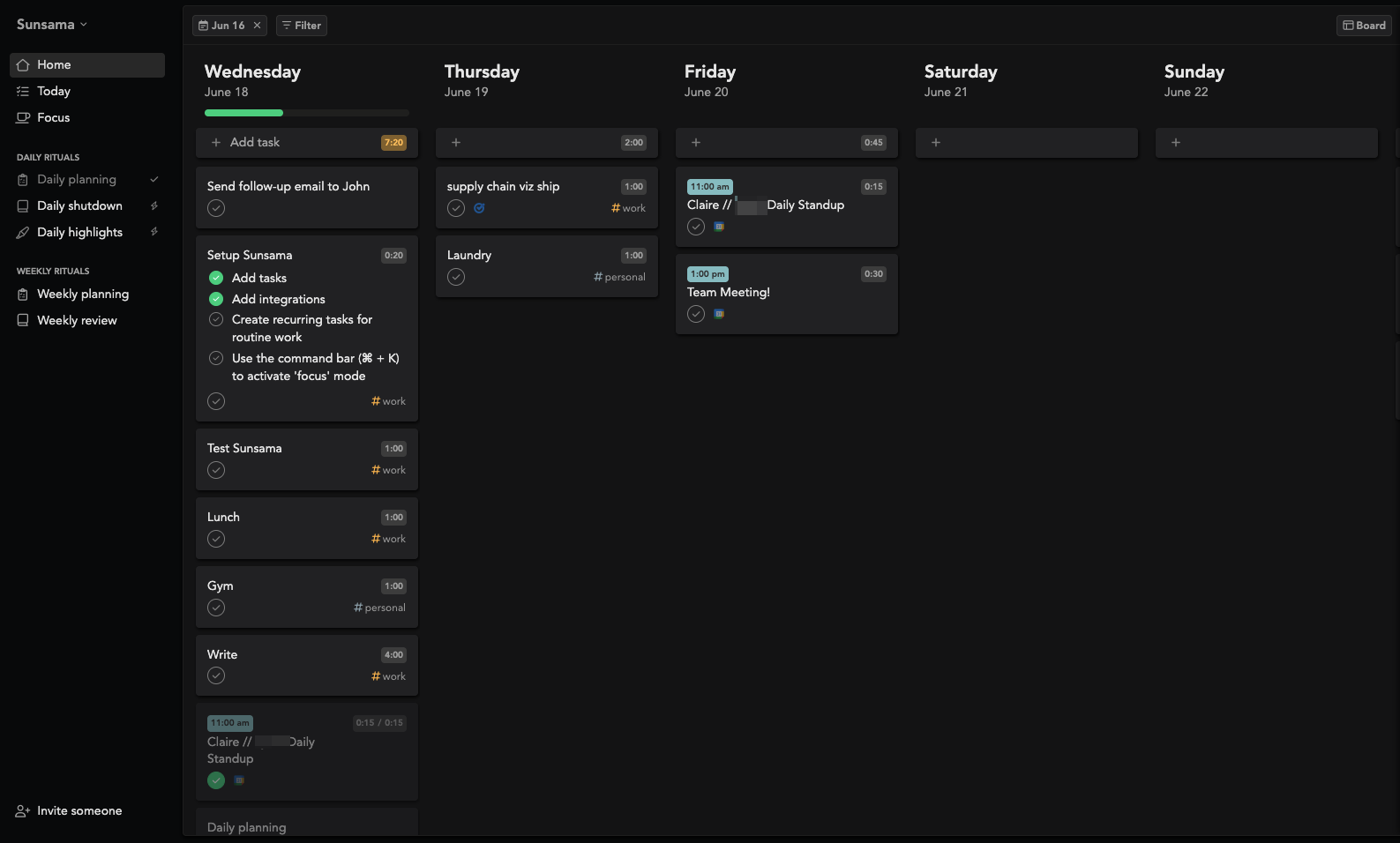
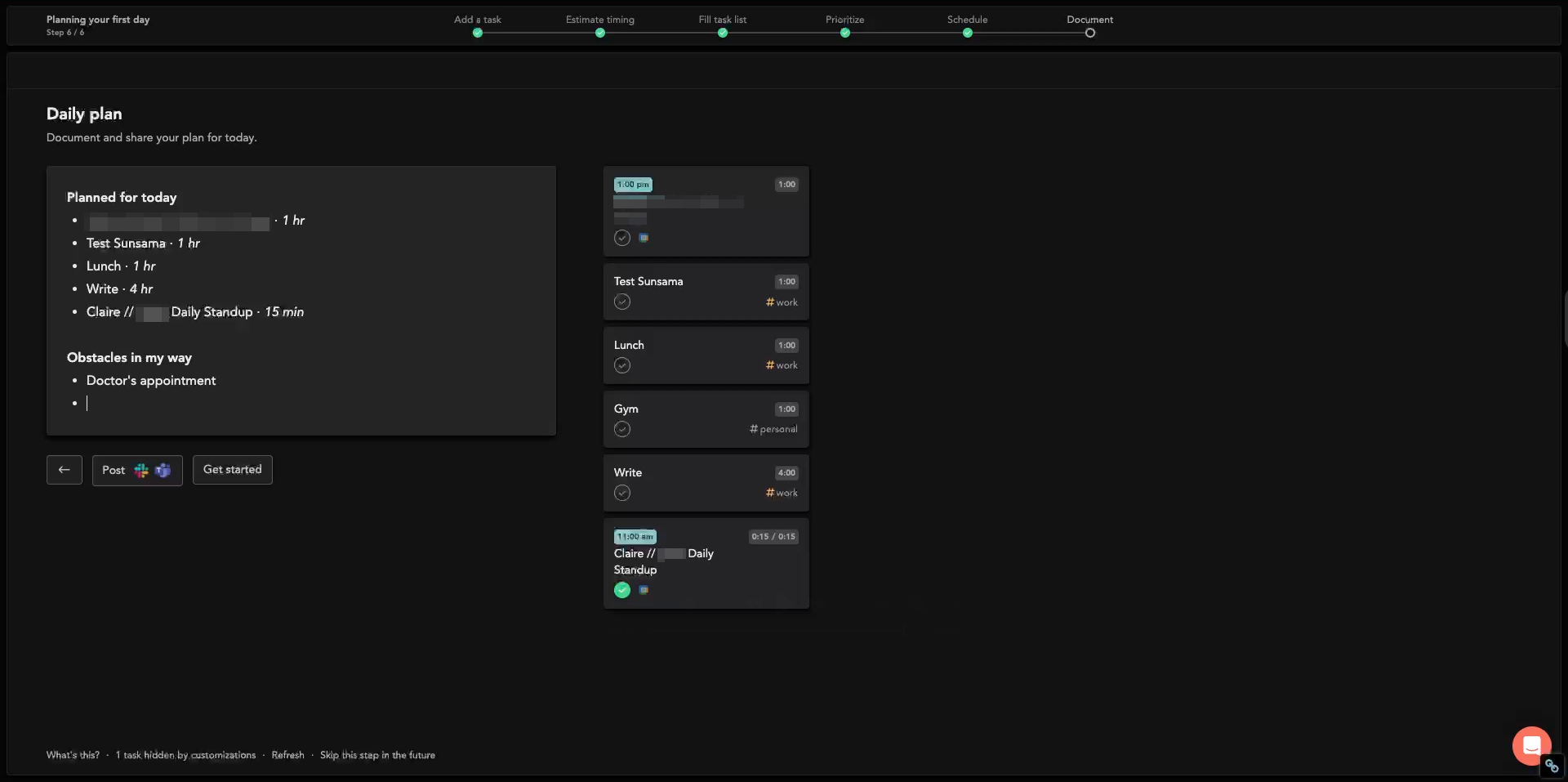
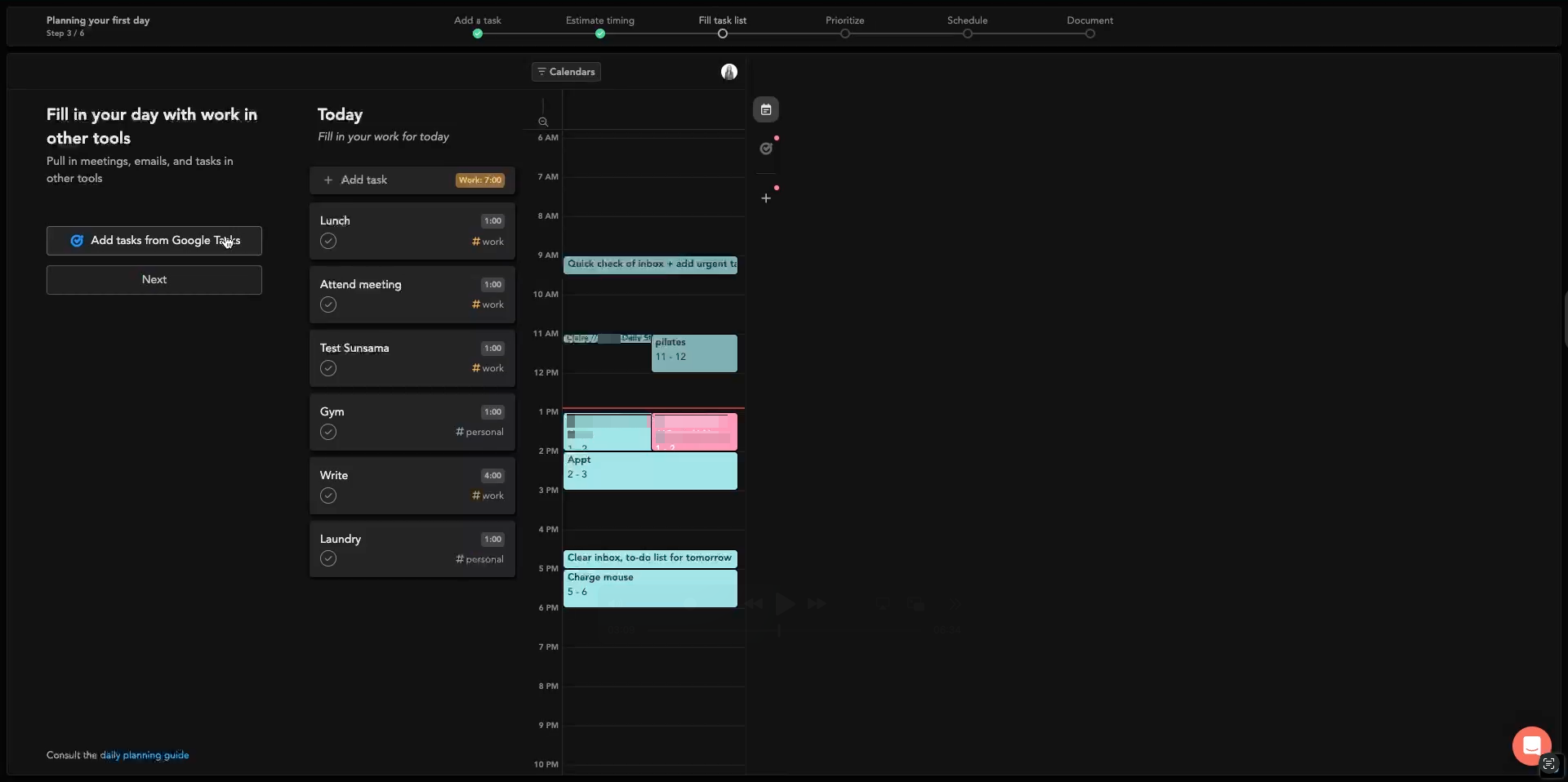
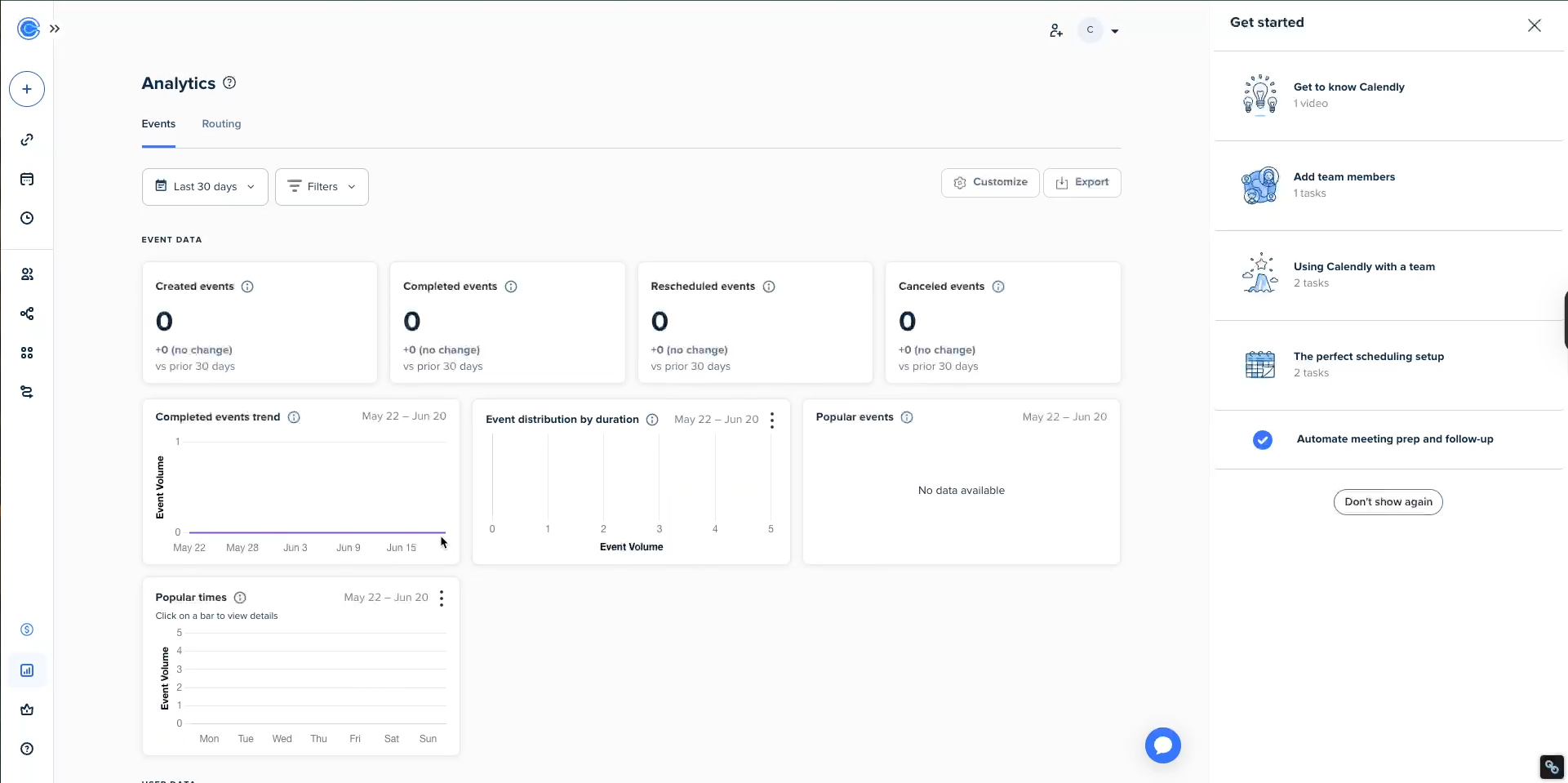
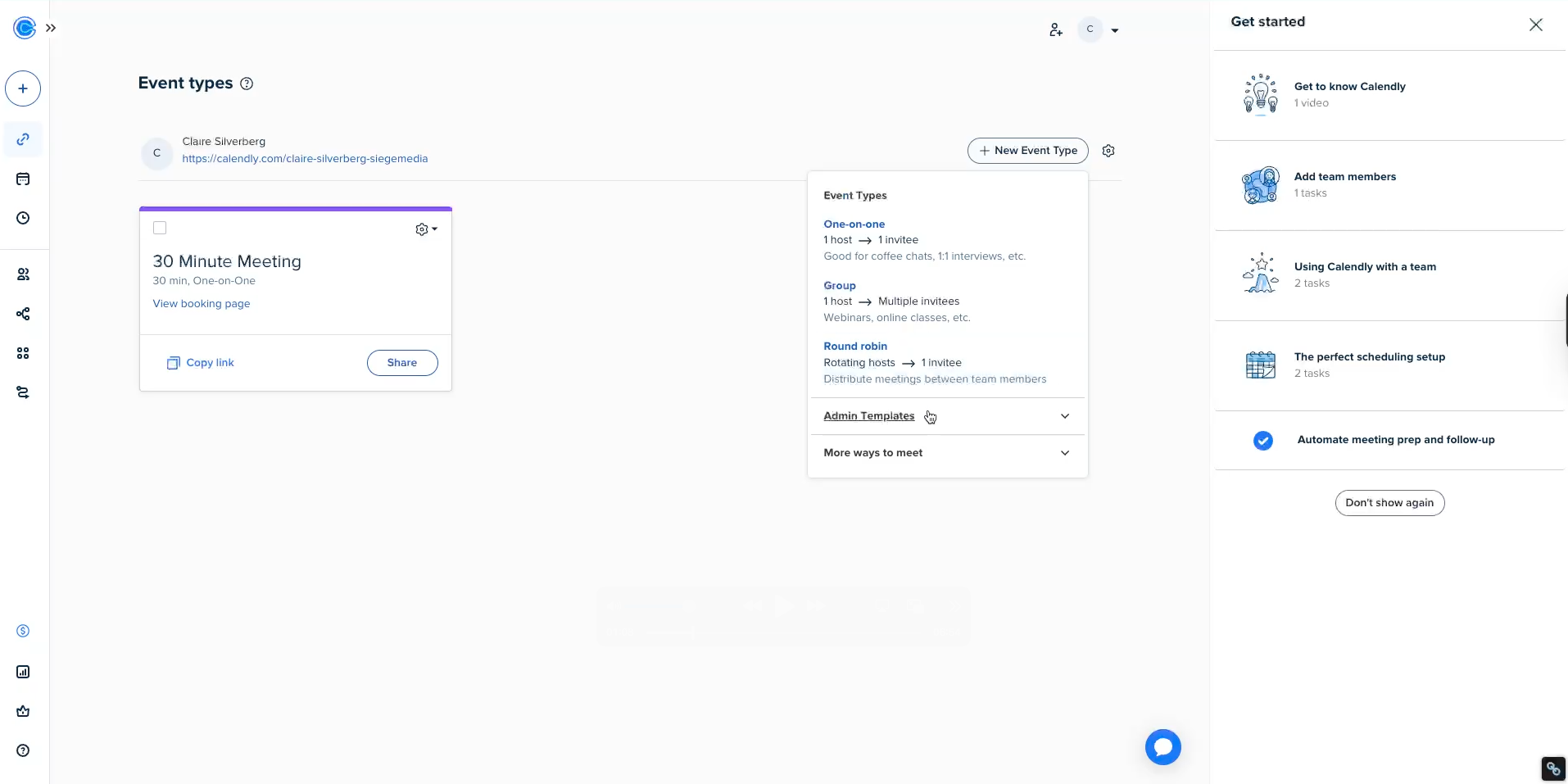
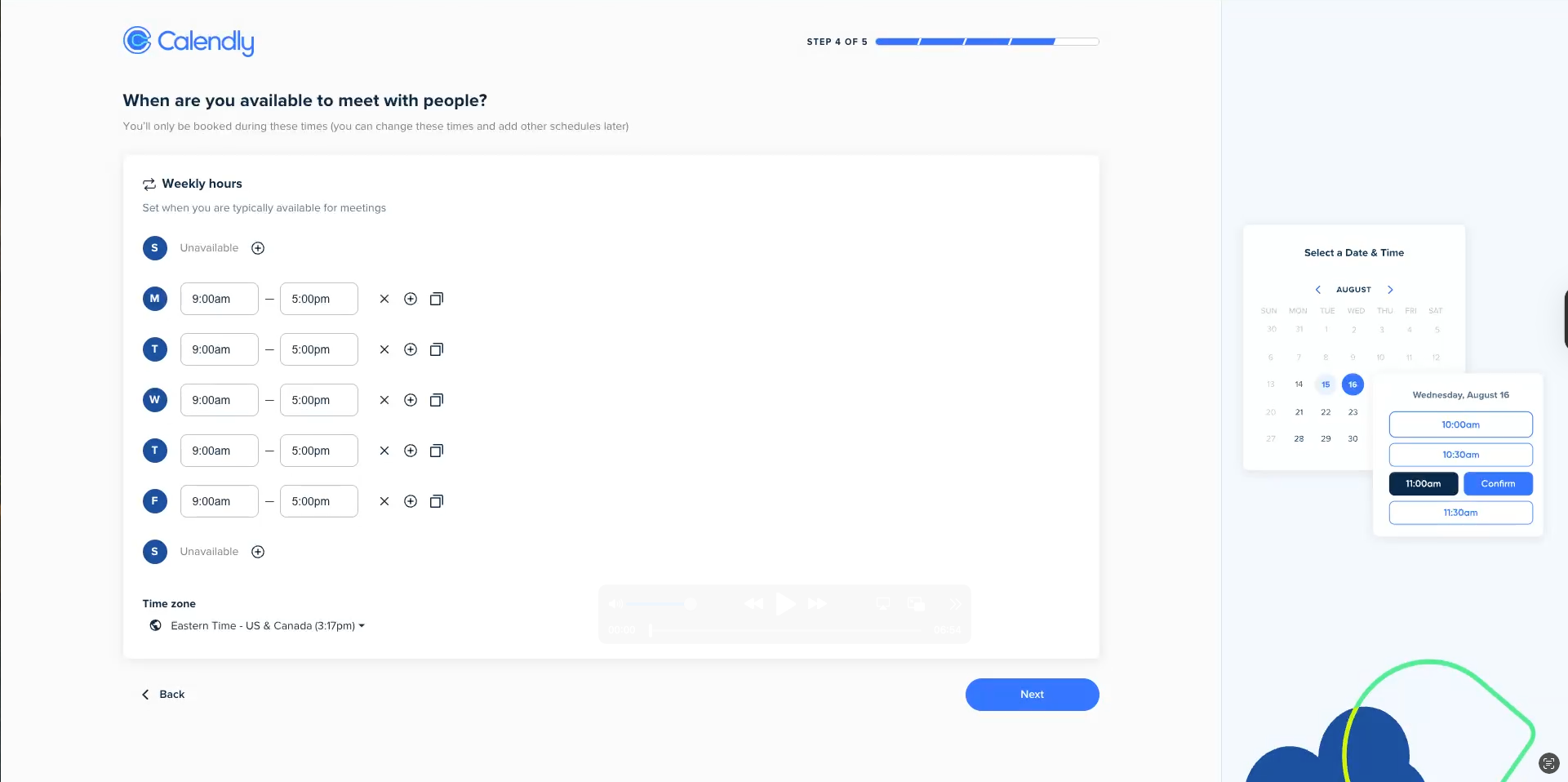


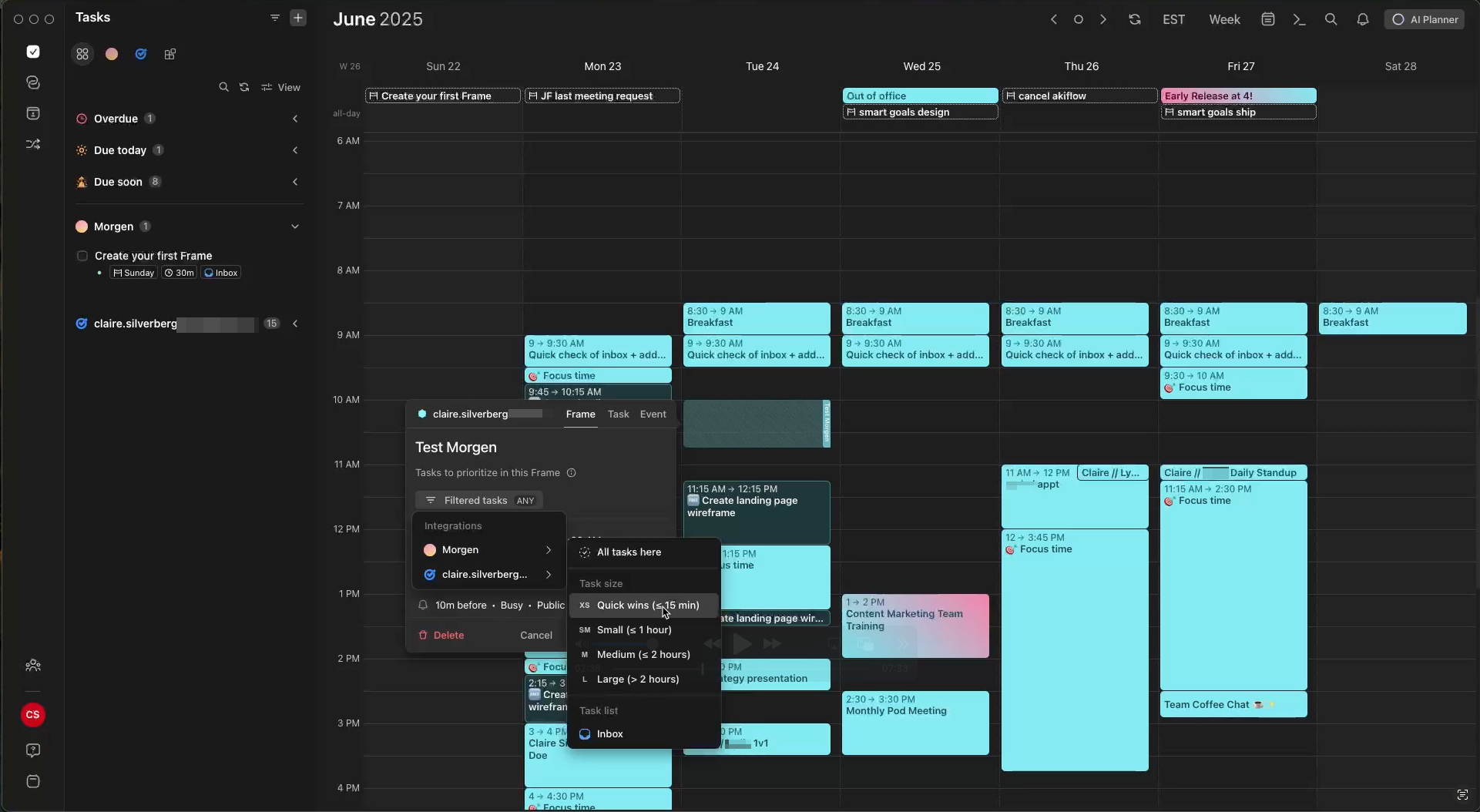


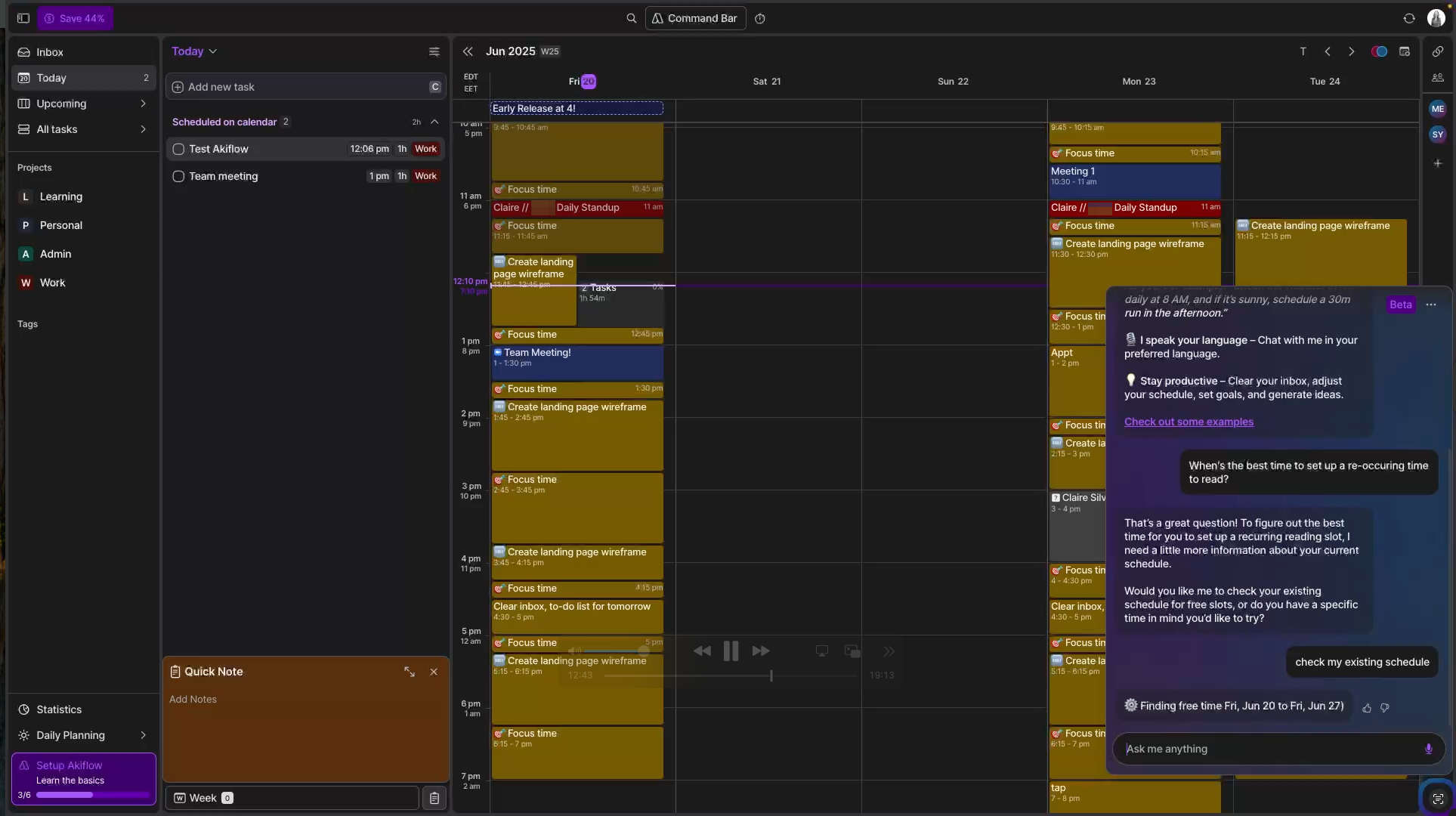
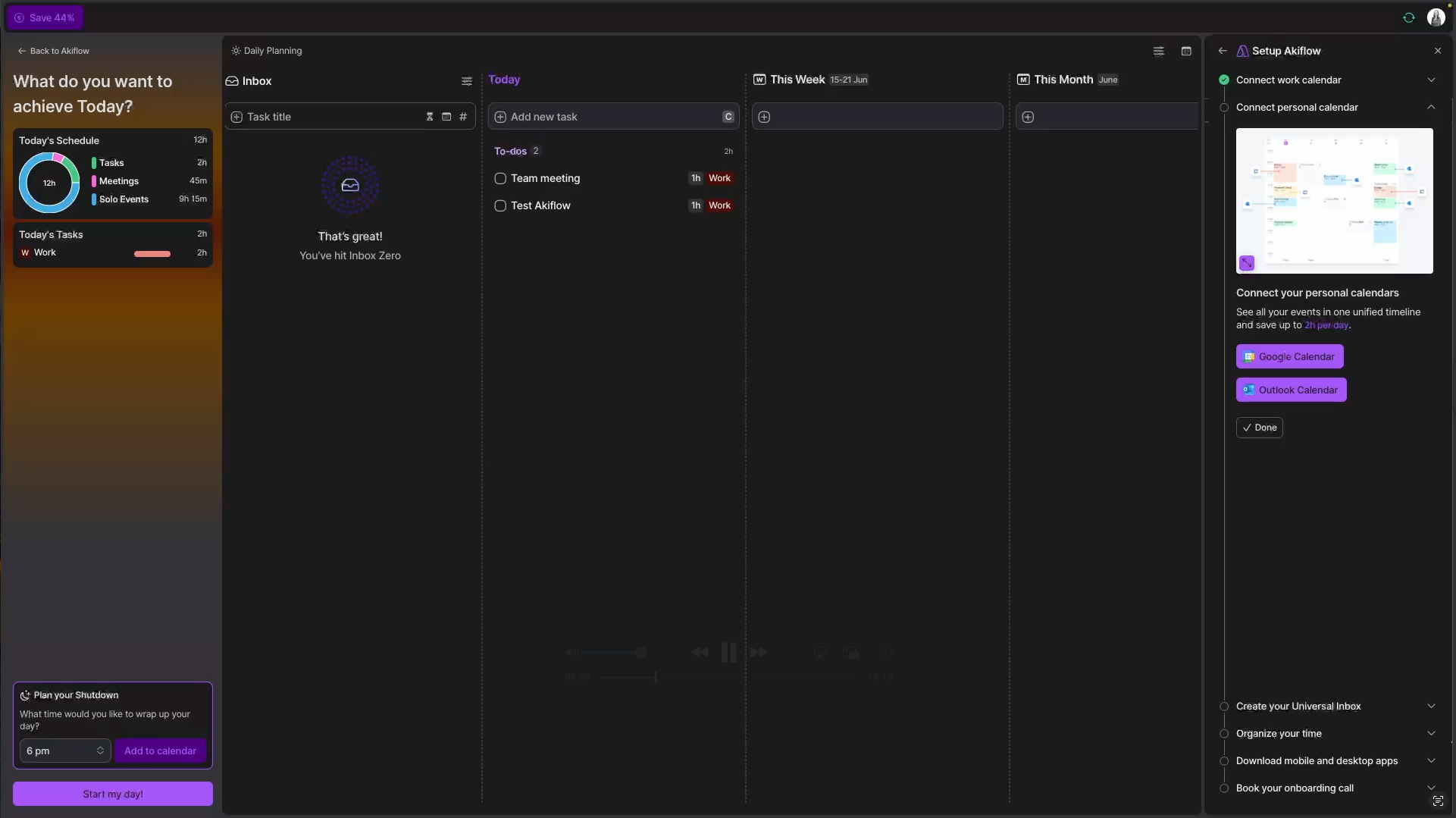
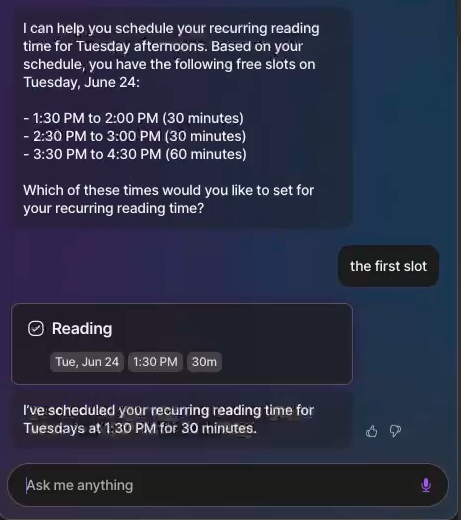









































































































Send Comment: